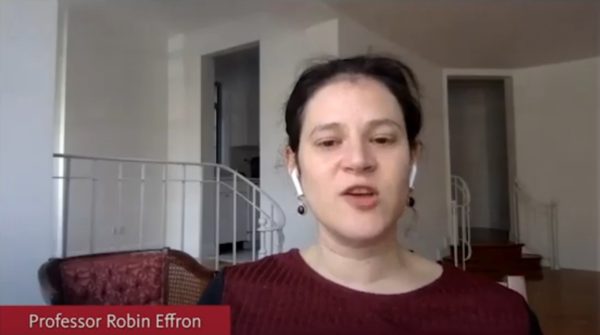
“ It can seek to provide financial literacy training to a broad swath of the population,” Reiss say.

Technically, the CFPB has three approaches it can take to this problem, David Reiss, a professor of law at Brooklyn Law School says. “The CFPB may want to test a credit card agreement printed in 10 or 12 point type, while still observing the specific requirements that govern format and type face size for some of the disclosures, and ask consumers for their reaction to such a document,” Torian suggests, adding, “there really is no easy answer.” That’s a maybe, although credit card companies are likely cringing at the thought of the printing costs. How about something simpler, say the idea that printing a credit card agreement in 12-point type (which would make it 30-pages long, but never mind)? “Compliance with such a requirement would pose an unreasonable added expense and compliance burden for the credit card issuers,” she says. Torian, a partner with ReedSmith LLP, it will have to determine what words required definitions, which would be a major undertaking since all credit card agreements do not contain the same terms. If the CFPB decided to move forward with something like this, says Roberta G. That said, for any company that writes a financial contract with a consumer-from telecos to rent-a-centers to credit card companies-the slow path CFPB is taking is illustrative.Ĭonsider some of the suggestions that consumer advocates have tossed out to remedy the long-standing issue of hard-to-read contracts:Ĭredit card agreements posted on-line that have pop-ups to define terms unfamiliar to consumers. Whether that is good news or bad, depends on your perspective and political leanings. So far, though, there is no sign of the demonic, out-of-control government overreach that its critics painted when the bureau moved through Congress. Professor Reiss is also the editor of, which tracks developments in the law and practices related to the real estate finance industry.Most likely the CFPB will step up its game if the president’s nominee to head the agency, former Ohio Attorney General Richard Cordray, is confirmed by Congress ( which he probably won’t be). Before law school, he worked for Community Access, a not-for-profit housing provider that assists people who have psychiatric disabilities as they make the transition from shelters and hospitals to independent living. from Williams College and his J.D., Order of the Coif, from the New York University School of Law.

He also served as a law clerk to Judge Timothy Lewis of the United States Court of Appeals for the Third Circuit.

Previously, he was an associate at Paul, Weiss, Rifkind, Wharton & Garrison in its Real Estate Department and an associate at Morrison & Foerster in its Land Use and Environmental Law Group. Prior to joining Brooklyn Law School, Professor Reiss was a visiting clinical associate professor at the Seton Hall Law School Center for Social Justice. His comments have appeared in The New York Times, The Wall Street Journal, Christian Science Monitor, and many real estate-focused news outlets, and he is a frequent contributor to The Hill. Professor Reiss is a frequently quoted expert on legal developments in the real estate finance sector.
#David reiss professor of law at brooklyn law school how to
He is the author of the forthcoming book on federal housing policy, Paying for the American Dream: How to Reform the Market for Mortgages (Oxford University Press, 2020). His scholarship focuses on the secondary mortgage markets, predatory lending, and housing policy. He is a member of the American Law Institute and is a Fellow of the American College of Real Estate Lawyers and the American Bar Foundation.

Professor Reiss is currently Chair of the New York City Rent Guidelines Board. He is actively involved within the Law School community, currently serving as Research Director of the Center for Urban Business Entrepreneurship (CUBE). He is the founding director of the Community Development Clinic and teaches property-related courses. Professor Reiss concentrates on real estate finance and community development.


 0 kommentar(er)
0 kommentar(er)
